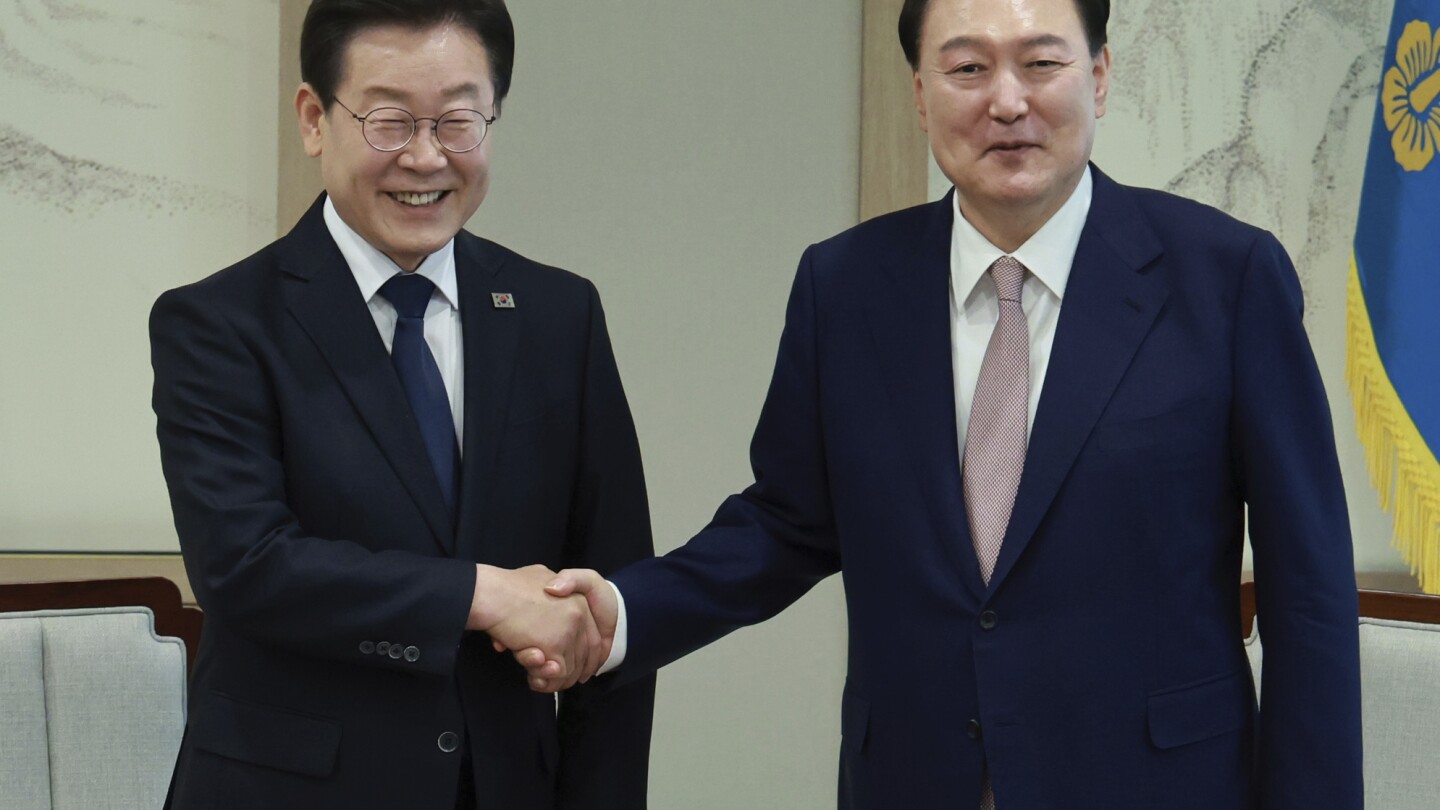SEOUL, South Korea (AP) — South Korean President Yoon Suk Yeol was talking with liberal opposition leader Lee Jae-myung on Monday about how to revive bipartisan cooperation, after Yoon’s conservative party recently suffered a massive defeat in parliamentary elections.
The meeting was their first since Yoon took office in 2022 after defeating Lee in the country’s closest presidential election. During their campaigns, Yoon, Lee and their supporters demonized each other and filed dozens of lawsuits against each other.
Yoon proposed the meeting as he faces growing calls to cooperate with Lee’s Democratic Party, whose win in the April 10 parliamentary elections allows it to extend its control of the single-chamber National Assembly until after Yoon’s single five-year term ends in 2027.
Yoon and Lee were meeting without a set agenda. Officials at Yoon’s presidential office and Lee’s party earlier said the meeting would focus on how to improve public livelihoods and promote cooperation on state affairs.
They also are expected to discuss how to end the weekslong strikes by thousands of junior doctors, which have been blamed for delayed surgeries and medical treatments and other burdens on medical services.
Some observers say Lee may raise his party’s demands that Yoon’s government must accept special investigations into allegations involving his wife and top officials. They say Lee may also ask Yoon to accept his idea of giving 250,000 won (about $180) to all South Koreans as a way to boost the economy, a step that Yoon’s party has called a populism-driven measure.
“The people want President Yoon Suk Yeol to make a grand change in the basics of his policies,” Democratic Party spokesperson Park Sung-joon said Sunday. “He must boldly accept special counsel probes to resolve diverse suspicions surrounding the Yoon Suk Yeol government.”
The presidential office and the Democratic Party are expected to separately announce the results of the meeting.
The parliamentary elections were seen a litmus test of Yoon, who has been struggling with low approval rating and an opposition-controlled parliament that has limited his policy agenda since his inauguration. Critics say the election defeat was largely attributable to the government’s failure to suppress rising prices and other economic problems and Yoon’s reluctance to replace top officials involved in scandals.
Despite the election defeat, Yoon’s major foreign policy agendas will likely remain unchanged as they mostly don’t require parliamentary endorsements. Yoon has pushed hard to boost a trilateral cooperation with the United States and Japan to cope with North Korea’s evolving nuclear threats and other challenges.

